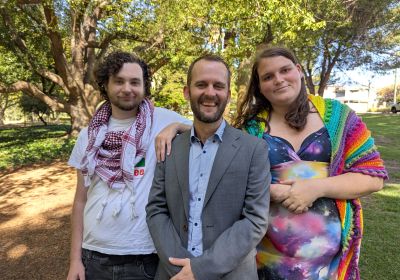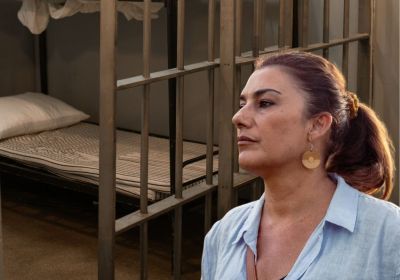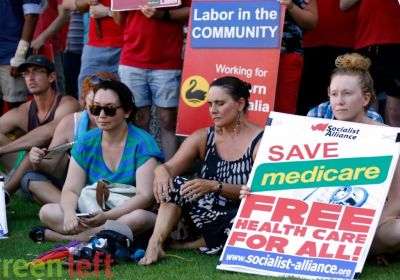
Socialist Alliance in Western Australia will run activist candidates in the federal seat of Fremantle and the Senate on a “People before Profit” platform. Janet Parker reports.

Socialist Alliance in Western Australia will run activist candidates in the federal seat of Fremantle and the Senate on a “People before Profit” platform. Janet Parker reports.

Gunnai Gunditjmara and Djab Wurrung independent Senator Lidia Thorpe has joined growing calls from medical experts for incarcerated people to receive equal access to healthcare. Josh Adams reports.

The controversy over a recent investigation into alleged fraud in the Medicare system points to system failures resulting from chronic under-funding. Jim McIlroy reports.

Paul Keating has rejected the Greens' criticism that Labor adopted neoliberalism. Alex Bainbridge argues that Labor's policies on superannuation and Medicare are examples of user-pays systems that privilege the well-off.

Trans rights campaigners say that the push to remove gender neutral language from a Medicare form sets a dangerous precedent for an already marginalised section of the population. Nova Sobieralski reports.

NSW Senate candidate Paula Sanchez told Green Left she is proud to receive support from the Latin American community, but has no illusions in how hard it will be to be elected and make the radical changes required.

The COVID-19 pandemic has thrown up many surprises, but none as sickening as the political right pretending to care about people’s mental health, argues Dechlan Brennan.

The federal government plans to reduce the number of health services it is prepared to subsidise with Medicare rebates. Jim McIlroy reports.

Long-term health care worker Zeta Henderson argues that the main lesson to be drawn from this second wave of COVID-19 in Victoria is that health care must be run as a service to the community.